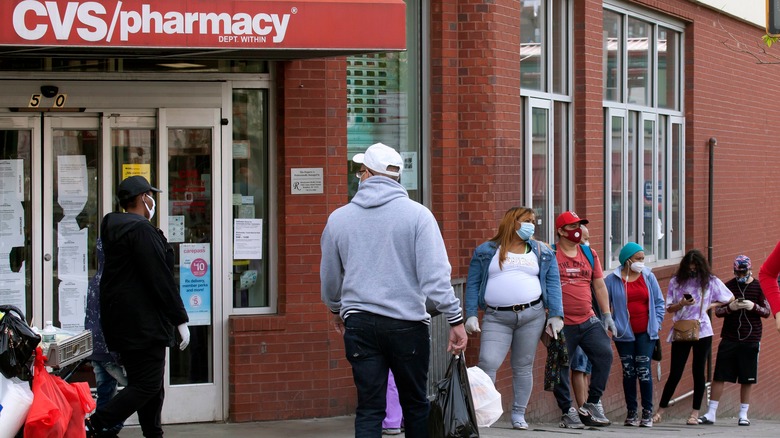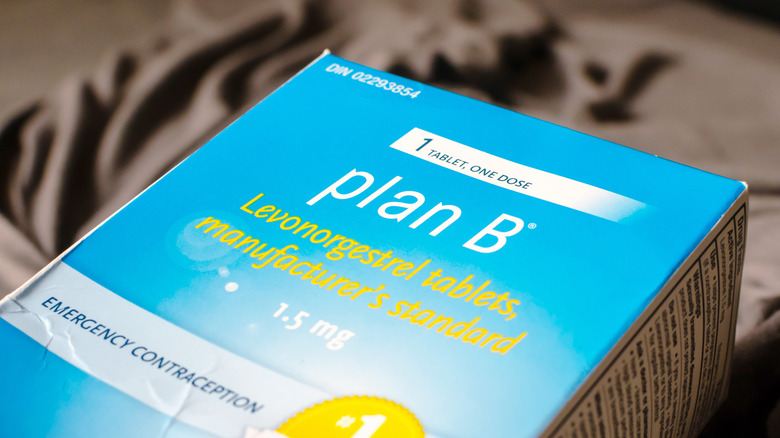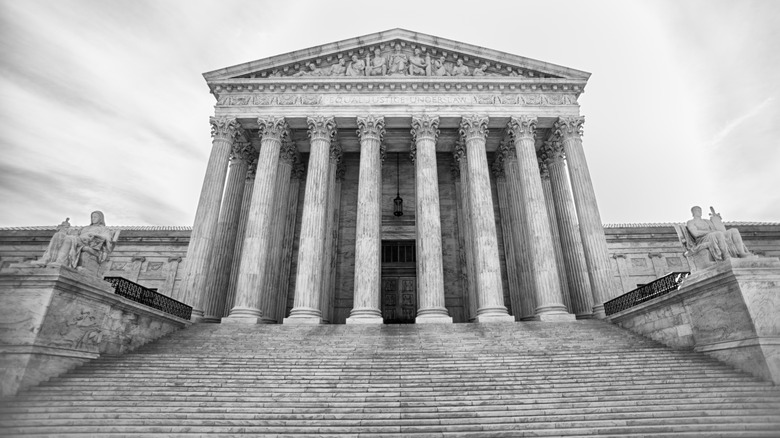Why You May Have A Hard Time Purchasing Emergency Contraceptives
Last Friday, on June 24, 2022, the Supreme Court of the United States (SCOTUS) sent shockwaves across the nation after announcing that in a 5-4 vote, Roe v. Wade — the landmark 1973 ruling that awarded women the constitutional right to a safe abortion — was overturned (per CBS News). Since the news broke, the effects of Dobbs v. Jackson Women's Health Organization can be seen and felt in many areas of life, including women's access to emergency contraceptives (EC). After correspondence with the companies' communications managers, CNN reported that the drug store chains CVS and Rite Aid will be putting restrictions on the purchase of emergency contraceptives.
Alicia Wojczyk, Rite Aid's senior manager of external communications, told CNN via email that due to increased demand, the sale of Plan B will be limited to three pills per customer. In another email sent by Matt Blanchette, CVS's senior manager of retail communications, it was confirmed that while CVS has "ample supply" of the EC like Plan B and Aftera, they will also be limiting purchase of the medication to three per customer "to ensure equitable access and consistent supply on store shelves."
How does EC work?
The New York Times reports that these restrictions come after women began trying to stock up on EC following the reversal of Roe v. Wade, in an attempt to regain some sort of control over their futures.
Emergency contraceptives like Plan B and Aftera are commonly referred to as the morning-after pill, as they are intended to prevent pregnancy following unprotected sex, or after birth control like condoms or diaphragms have failed. The nation's federal Office on Women's Health states that EC works most commonly by delaying ovulation, and less commonly by preventing fertilization of the egg if ovulation has already occurred. They report — in no uncertain terms — that if an egg is already fertilized and implanted in the uterus, EC can do nothing to stop or harm the pregnancy.
Despite this, NBC News reports a distinct possibility that the overturning of Roe v. Wade might lead to the blocking of EC in states that outlaw abortion.
Why is access to EC at risk?
Prior to SCOTUS' decision on Friday, thirteen states had trigger laws that, in some cases, restricted access to abortion as soon as the ruling was announced (per CBS News).
Wendy Parmet, director of the Center for Health Policy and Law at Northeastern University, told NBC News that the states trying to limit abortion from the moment of conception might try to challenge EC and intrauterine devices (IUDs) under the basis that preventing implantation falls under the blanket of abortion. While the Dobbs ruling does not affect access to contraception, experts like Parmet believe these states will be emboldened by the ruling, believing they have the "tailwind of the Supreme Court" backing them up.
Currently, EC is still legal nationwide, but level of accessibility varies by state (per New York Times). For those living in states that enact conscience clauses – giving pharmacists the right to deny selling EC based on their moral beliefs — prescription and purchase of EC can be obtained online with companies like NURX. Keep in mind that emergency contraception should be taken as soon as possible — within three to five days, depending on the type — to prevent pregnancy (per Office on Women's Health).



